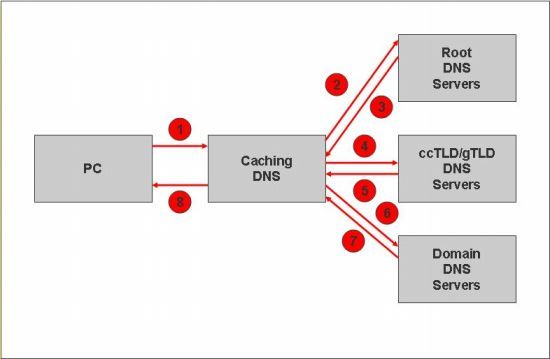Finding out information about a particular web site, such as who owns the domain, can be easily accomplished by using the following specified search engines. Here are the basics of doing a DNS lookup based on the URL, as well as an outline for performing a reverse DNS lookup.
Basic DNS Lookup
Many organizations offer the ability to enter the web address to find out (1) if the domain name is currently active, and (2) where to go in order to learn more about who owns the domain name. Just about any company that registers domain names or offers hosting services will have this capability prominently posted along with the data about their product offerings. In addition, there are several sites that specialize in providing access to the published data surrounding the ownership of domain names.

Generally, the process is a matter of entering the domain name in a field and then clicking on a search key. The search engine will query public records relating to domain names, return confirmation that the domain name does exist, and offer the opportunity to be redirected to a site that provides more detail about the owner and the current expiration date. In some cases, all the information required to contact the owner about possible purchasing rights to the domain name.
Reverse DNS Lookup
Performing a reverse DNS lookup is somewhat similar to this basic method. What is different is that the search criteria may consist of more than one type of data. For example, a reverse DNS lookup may be conducted using an IP address, the name of a firm, or even the name of an individual. The same type of public information that is available through a basic lookup is also accessible with the reverse mode of lookup.
Why Perform a DNS Lookup?
A DNS lookup is handy for several applications. First, it is a quick way to check on the availability of a domain name that an individual or company wants to acquire. Second, it is a great way to research the business operations of another entity. Last, it is a great way to investigate the origin of unwanted electronic communications, and possibly be able to put a stop to them.
No comments:
Post a Comment